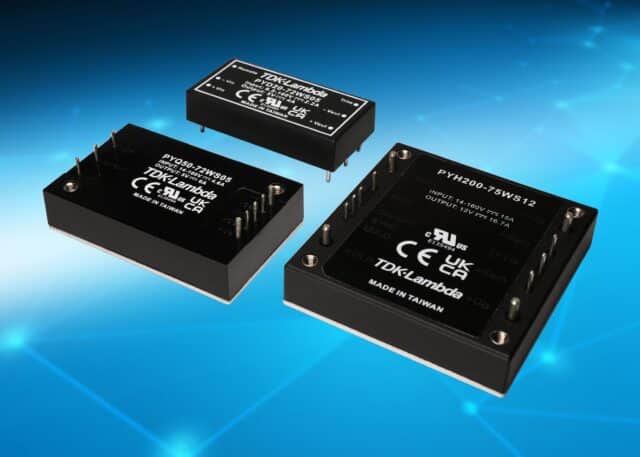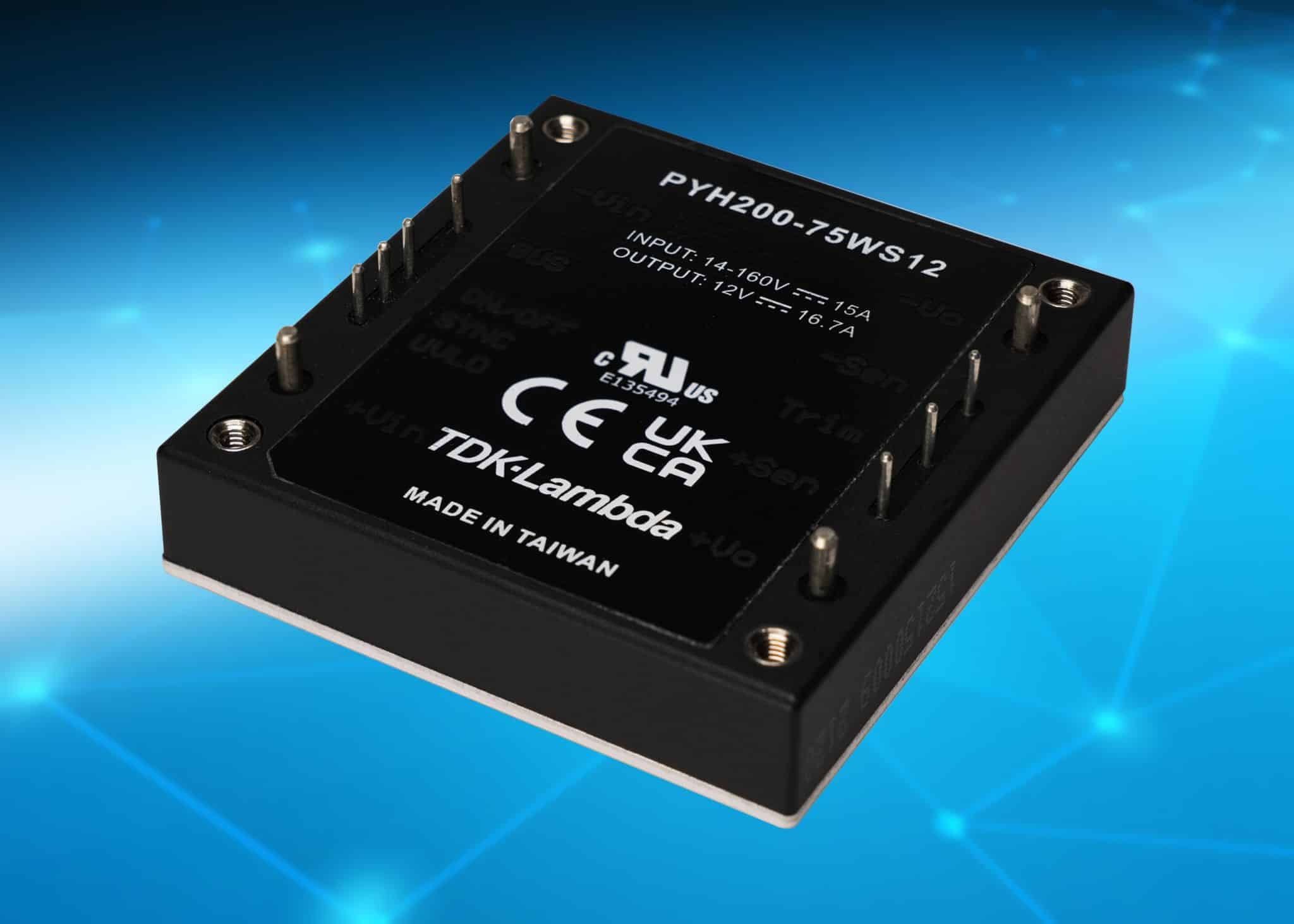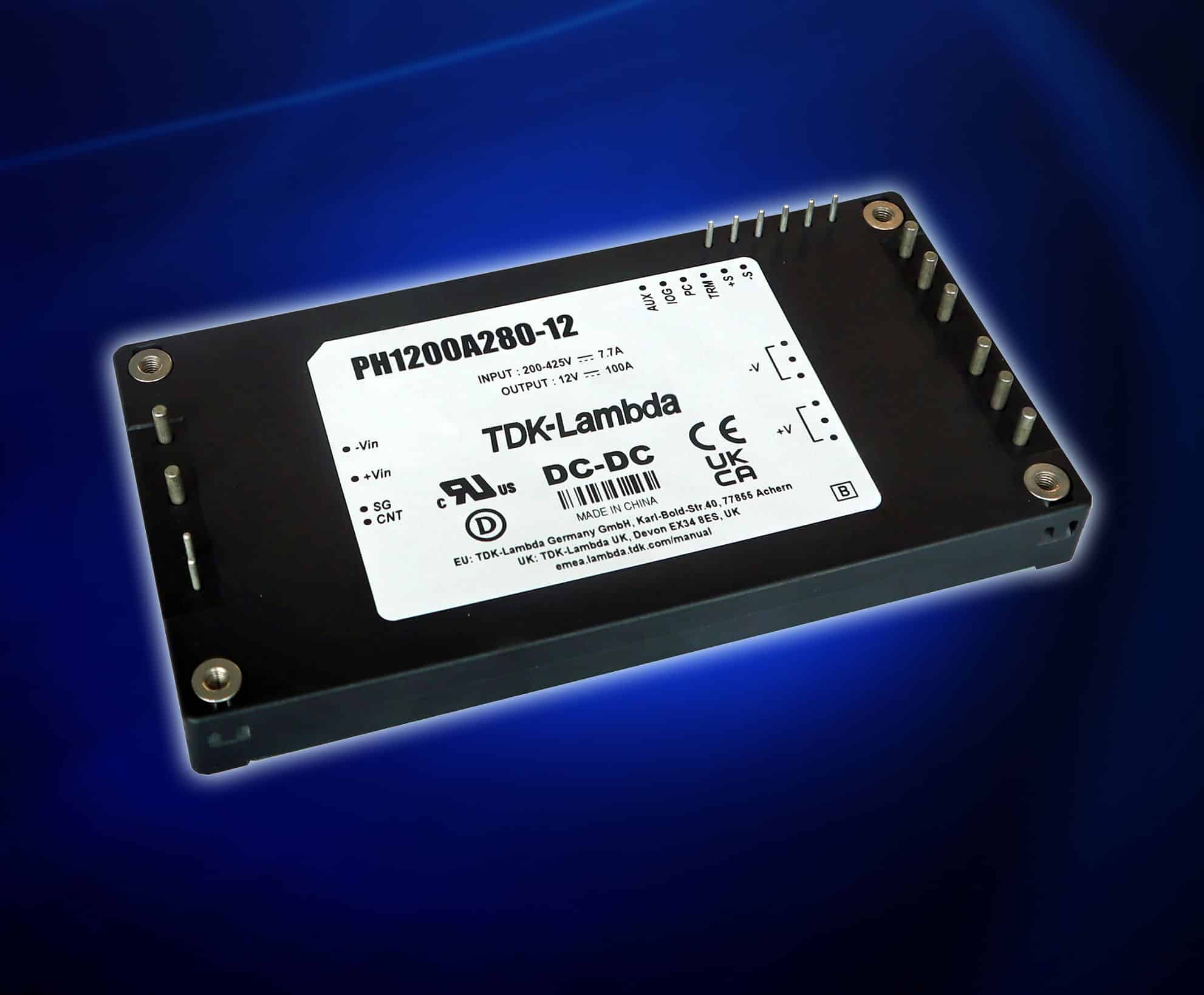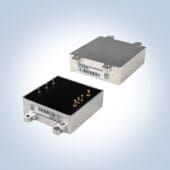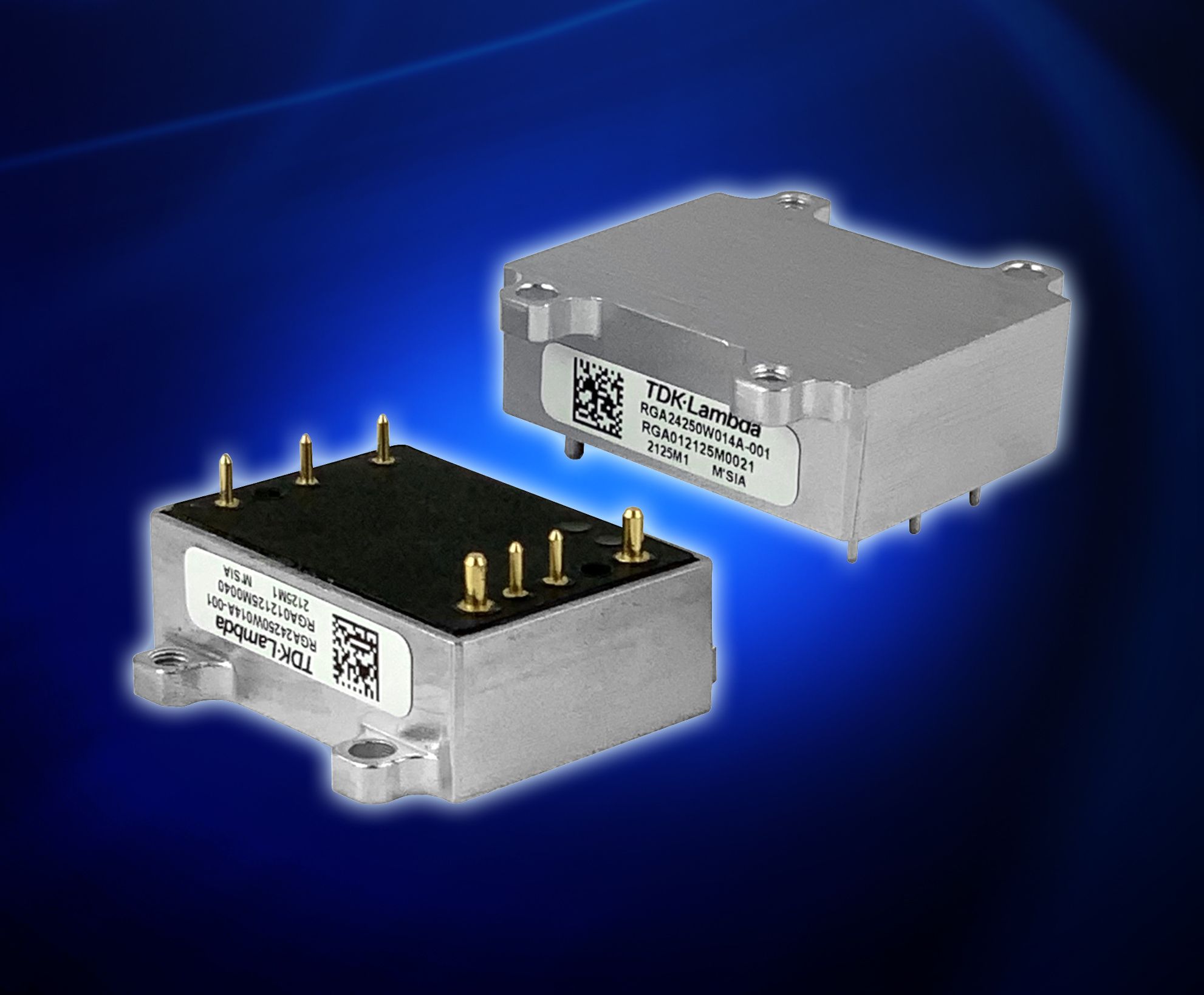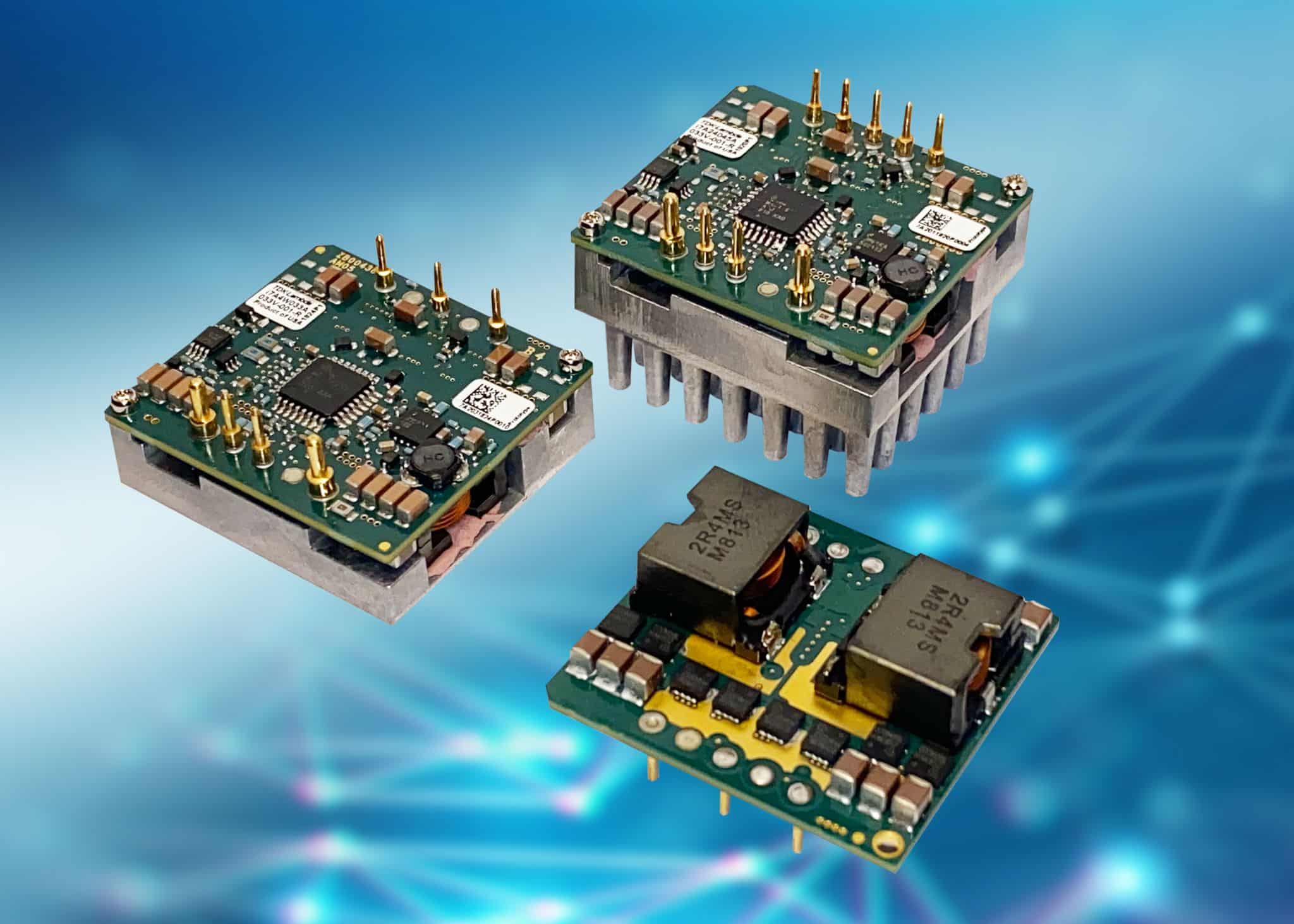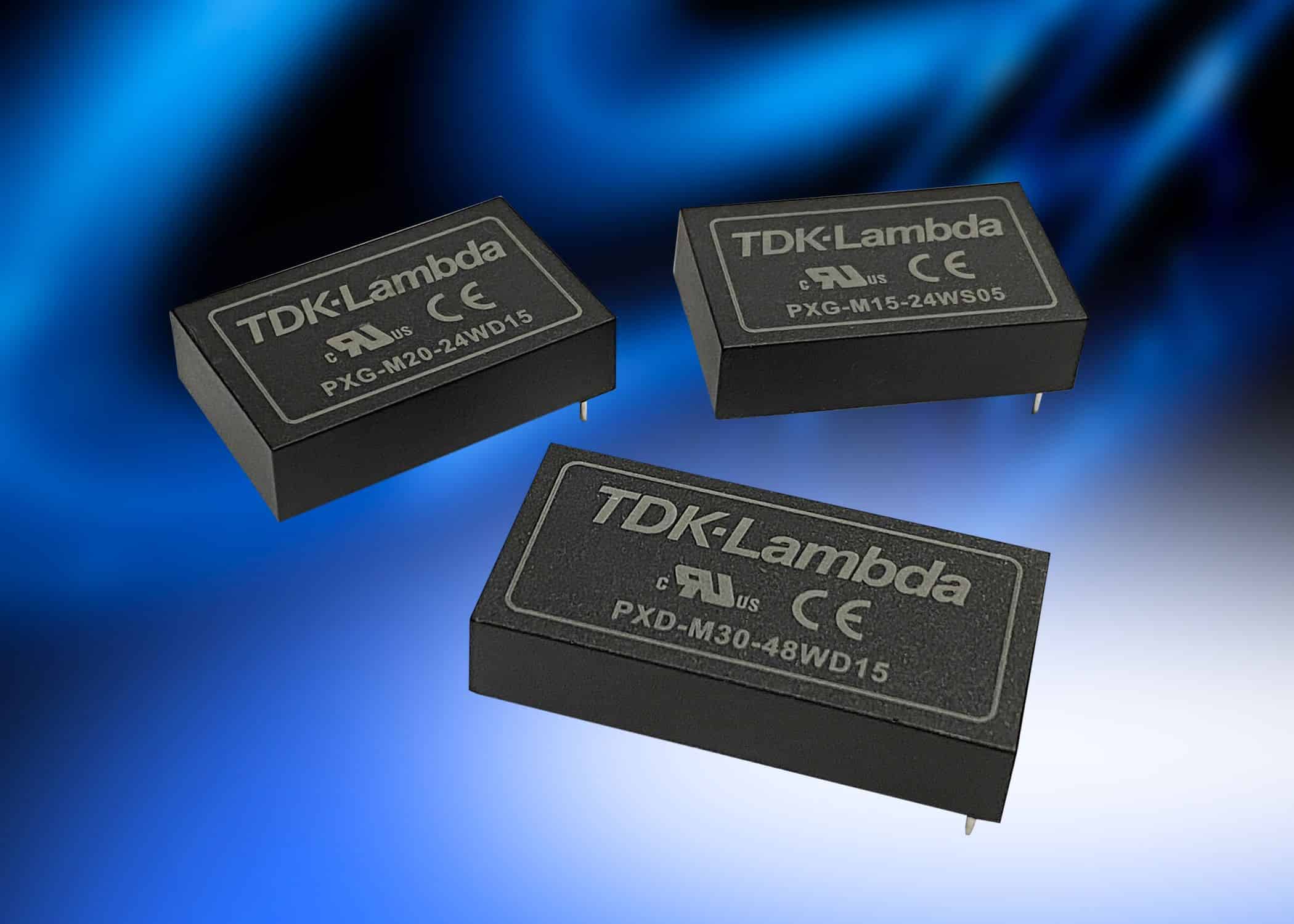PYQ50 and PYQ75 models offer a wide input range in a robust design
TDK Corporation (TSE 6762) announces the introduction of the series TDK-Lambda PYQ of DC-DC converters from 30 to 75 W, made up of the models PYQ50 with a power output of 30 50-W and an ultra-wide input range of 12:1 and from 14 to 160 Vdc, and PYQ75, which is characterized by a power output of 75 W and an entry of 8:1 and from 9 to 75 Vdc.
These products of card mount are presented in a format quarter-brick (57,9 x 36,8 x 12,7 mm). His design potted silicone offers a high level of shock and vibration resistance, especially in applications conforming to EN 50155, the standard for electronic equipment used in power applications. rolling stock and the railway sector.
The TDK-Lambda PYQ series can also be used in those industrial and measuring equipment that require a battery backup or a DC source.
PYQ50 units are available with four nominal outputs (5, 12, 24 and 48V), while the PYQ75 models have five outputs (12, 15, 24, 28 and 48V, which can be adjusted between -20 and +15 percent for non-standard voltages).
All new DC-DC converters have functions of protección against overload, output overvoltage and overheating, as well as remote sensing and remote on/off functions.
These power modules achieve efficiencies of 90 percent and can operate at room temperature from -40 to +105 °C (+100 °C for PYQ50). Optional heat sinks facilitate convection and forced-air cooling. The new models can also be cooled by conduction using a cold plate.
The PYQ50 family has 3.000 Vdc input to output isolation, 2.500 Vdc input to motherboard and 500 Vac output to motherboard, while the PYQ75 range offers 3.000 Vdc input to output isolation, input to 2.100 Vdc motherboard and output to 1.500 Vac motherboard.
The PYQ series is certified to safety standards IEC/UL/CSA/EN 62368-1 and the marked CE and UKCA for Low Voltage directives (LV) and RoHS. Combined with a typical test configuration, it has been tested to exceed EN 50155, EN 45545-2, EN 61373 and EN 50121-3-2 rail industry standards.


